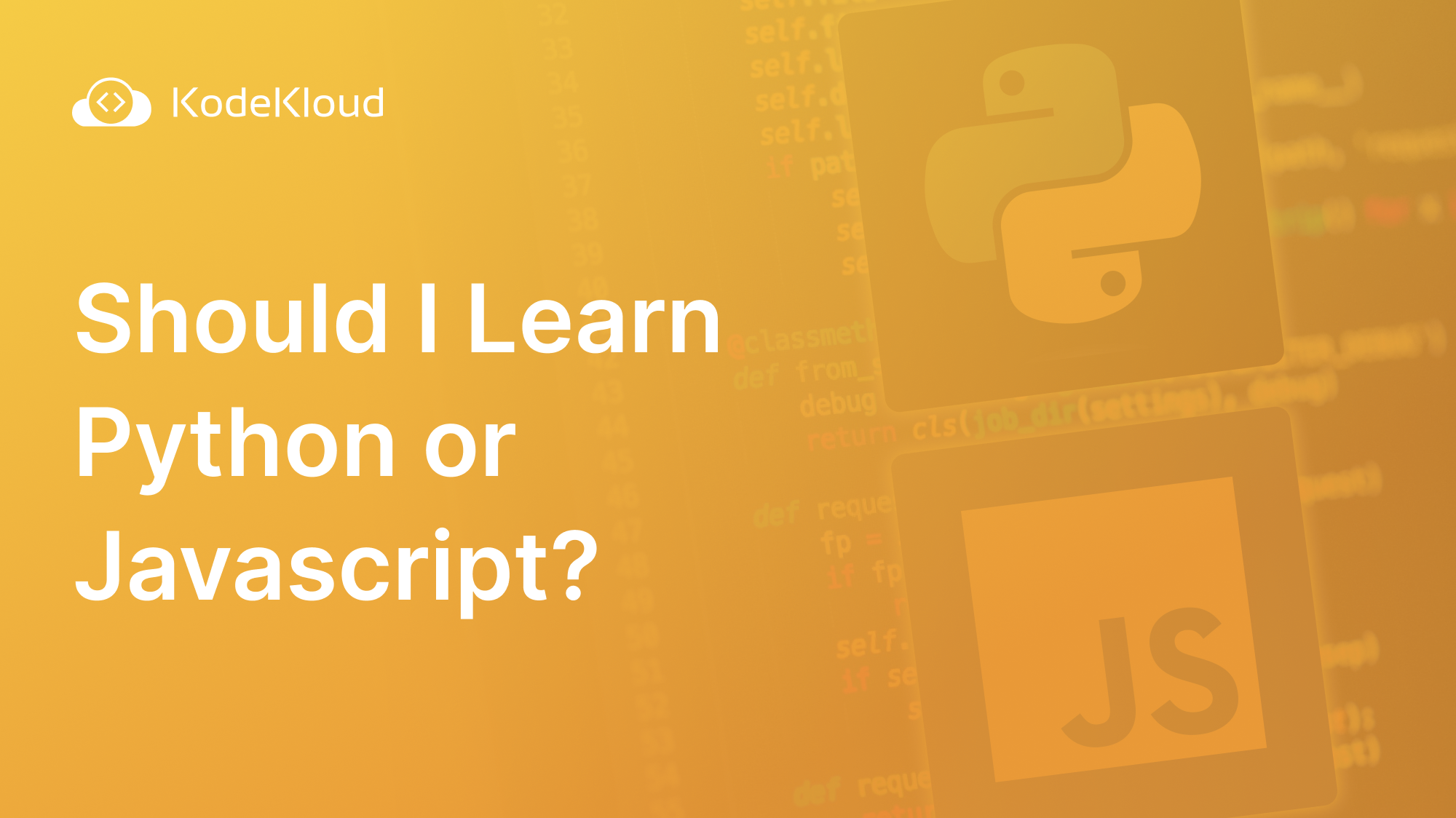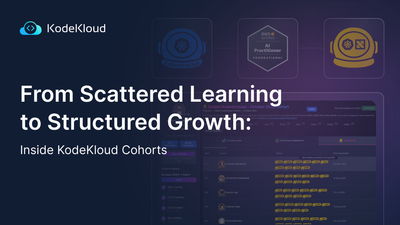As application development evolves and programming languages advance, choosing the programming language to learn can be difficult. Two of the most widely used languages today are Python and JavaScript. Both languages offer unique features, advantages, and application areas.
In this blog post, we'll discuss their characteristics, applications, and benefits to help you decide which language best fits your needs.
Introduction to Python and JavaScript
Python is an interpreted, high-level, and general-purpose programming language that was released publicly in 1991. It has quickly become popular as an excellent option for beginners due to its shallow learning curve. It emphasizes code readability while being user-friendly, making it perfect for novice programmers!
On the other hand, JavaScript is a dynamically interpreted programming language created by Brendan Eich in 1995 for front-end web application development. Over time, JavaScript has also found use in server-side web development through Node.js. It is now a full-stack language capable of powering client-side and server-side processes for web apps.
Advantages of Learning Python
Below are the advantages of learning Python:
Simplicity and Readability: Python's clean and readable syntax makes it a preferred choice for beginners who want to learn how to write, debug, and maintain code fast.
Versatility: Python's wide collections of libraries and frameworks make it an excellent fit for different use cases. Additionally, learning Python offers a wide range of career prospects in many sectors.
Community and Resources: Python boasts a lively and active developer community, contributing to its continued evolution and advancement. There is ample online documentation, tutorials, forums, and open-source projects available that make learning the language easy.
High Demand in the Job Market: Python developers are in demand in the job market due to its wide adoption. From web development to data science or artificial intelligence, proficiency in Python increases your career opportunities significantly.
To get started with Python, check out our Python Basics course.
Advantages of Learning JavaScript
Below are the advantages of learning JavaScript:
Full-Stack Development: With the introduction of Node.js, JavaScript has expanded to cover server-side development capabilities, making it possible for developers to create full-stack applications using only one language. It helps streamline development processes by eliminating multiple languages and frameworks from their learning process.
Rich Ecosystem of Libraries and Frameworks: JavaScript offers a diverse ecosystem of libraries and frameworks. It has an expansive ecosystem of libraries and frameworks such as React, Angular, and Vue.js that make web application development faster and simpler. These frameworks provide tools for building modern user interfaces with responsive design features.
High Demand and Attractive Salaries: JavaScript developers are in high demand, and companies are willing to pay top salaries for experienced professionals. Proficiency in JavaScript could open doors to lucrative career opportunities across front-end, back-end, or full-stack development roles.
Python vs. JavaScript: Key Differences
Below are the main differences between Python and JavaScript:
Syntax and Language Features
Python emphasizes code readability through indentation to specify code blocks, making it intuitive and straightforward for beginner programmers to learn. It supports procedural and object-oriented programming paradigms and includes powerful features like dynamic typing, automatic memory management, and an extensive standard library.
JavaScript's syntax can be more complex for novice programmers than Python, especially at the beginning. It follows C-style syntax with curly braces and semicolons, denoting code blocks and statements. JavaScript supports procedural and object-oriented programming paradigms and offers features like dynamic typing, first-class functions, and closures, which can be difficult for beginners to learn.
Performance and Execution Environment
Python is an interpreted language, meaning an interpreter executes code line by line without compilation. While Python's interpreted nature can lead to slower execution than compiled languages like C or C++, its simplicity and ease of use make it a preferred choice for many developers. Additionally, it’s performance can be optimized using techniques such as code optimization, built-in data structures, and leveraging third-party libraries written in C or C++.
JavaScript is also an interpreted language, but its execution environment varies depending on whether it's running on the client side (in a web browser) or the server side (using Node.js). In a web browser, JavaScript code is executed by the browser's JavaScript engine, such as V8 in Chrome or SpiderMonkey in Firefox. On the server side, JavaScript code is executed by the Node.js runtime environment, which allows developers to write server-side applications using JavaScript. Its performance varies depending on the execution environment and the efficiency of the underlying JavaScript engine.
Learning Curve and Resources
With its easy learning curve and extensive documentation, Python is an excellent option for newcomers to programming. Its clean syntax, comprehensive documentation, and extensive developer community contribute to its accessibility and ease of learning. Additionally, numerous online resources, such as tutorials, courses, books, and interactive coding platforms, are available.
Compared to Python, JavaScript offers an intense learning curve for beginners. Its complex syntax, asynchronous nature, and peculiarities like type coercion and hoisting may make learning it daunting. However, with dedication and practice, you can overcome these challenges and become a proficient developer.
Luckily, many resources such as tutorials, courses, books, and coding boot camps exist for learning JavaScript. Moreover, its community is active and welcoming, providing forums, meetups, and online communities where developers can collaborate while learning from one another.
Ecosystem and Community Support
Python boasts an extensive ecosystem featuring libraries, frameworks, and tools that enable development across many domains. The Python Package Index (PyPI) hosts over 300K packages to meet nearly any programming need imaginable. Popular frameworks like Django, Flask, and Pyramid facilitate web development, while libraries like NumPy, SciPy, and Matplotlib support data science. Furthermore, its active community fosters collaboration through conferences, meetups, Stack Overflow, Reddit, etc.
JavaScript's ecosystem has libraries, frameworks, and tools for front-end, back-end, and full-stack development. npm has grown into the largest open-source library ecosystem worldwide, housing over 1.5 million packages in its registry. Frameworks like React, Angular, and Vue.js have transformed front-end development by enabling developers to create powerful interactive user interfaces.
Additionally, frameworks like Express.js and NestJS provide efficient server solutions. JavaScript's large community of developers, designers, and enthusiasts thrive through collaboration and innovation, driving the language's evolution while shaping its ecosystem.
Job Market and Career Opportunities
Due to Python's versatility and wide adoption, its developers are in high demand across various industries, including tech giants, startups, academia, finance, healthcare, and government. There are multiple job roles for Python developers, ranging from web developers and software developers to data analysts and machine learning engineers.
A Python certification can boost your career. Check out this article on How to Get Python Certification: The Step-By-Step Guide.
JavaScript's rise as the go-to web development language and server-side programming technology has increased the need for JavaScript developers. Front-end specialists and back-end developers are in high demand at the moment. Full-stack developers with expertise in both front-end and back-end JavaScript development are in even greater demand in today's tech economy!
Future Trends and Industry Outlook
Python continues its rise as a top programming language, experiencing steady adoption across industries and domains. As the artificial intelligence, machine learning, and data science industries grow, Python’s popularity and adoption will continue to grow. It’s simple programming model, versatility features, and community support make it ideal for addressing emerging challenges like cybersecurity development, cloud computing deployment, and Internet of Things development (IoT development).
JavaScript's evolution from a client-side scripting language to a full-stack powerhouse has cemented it as one of the cornerstones of modern web development. As web technologies advance and consolidate, their influence will extend beyond traditional web apps to emerging paradigms such as Progressive Web Apps (PWAs), serverless architecture, and real-time collaboration. JavaScript’s versatility and cross-platform compatibility make it an excellent choice for building next-generation applications on the web, mobile desktop computers, or IoT devices, which ensures its relevance within the ever-expanding tech landscape, securing its place within the ever-expanding tech landscape.
When to Learn Python
Here are some scenarios in which learning Python can be particularly advantageous:
- Beginners in Programming
- Data Science and Analytics enthusiasts
- Individuals who want to pursue web development
- Individuals who want to pursue automation and scripting projects
- Machine learning and artificial intelligence enthusiasts
When to Learn Javascript
Learning JavaScript can be advantageous in various scenarios, given its versatility and widespread adoption across different domains. Here are some situations in which learning JavaScript can be particularly beneficial:
- Individuals who want to pursue web development
- Individuals who want to become full-stack web developers
- Individuals who want to become mobile app developers
- When you want to learn APIs and Browser Automation
- Game Development enthusiasts
Conclusion
Python and JavaScript are powerful programming languages with distinct advantages and applications. Ultimately, you should select which one to learn depending on your interests, career goals, and projects you wish to undertake.
No matter which language you decide to learn, proficiency in Python or JavaScript will undoubtedly advance your skills as a programmer and open up exciting career prospects in today’s fast-moving technology sector.
More Python articles:















Discussion